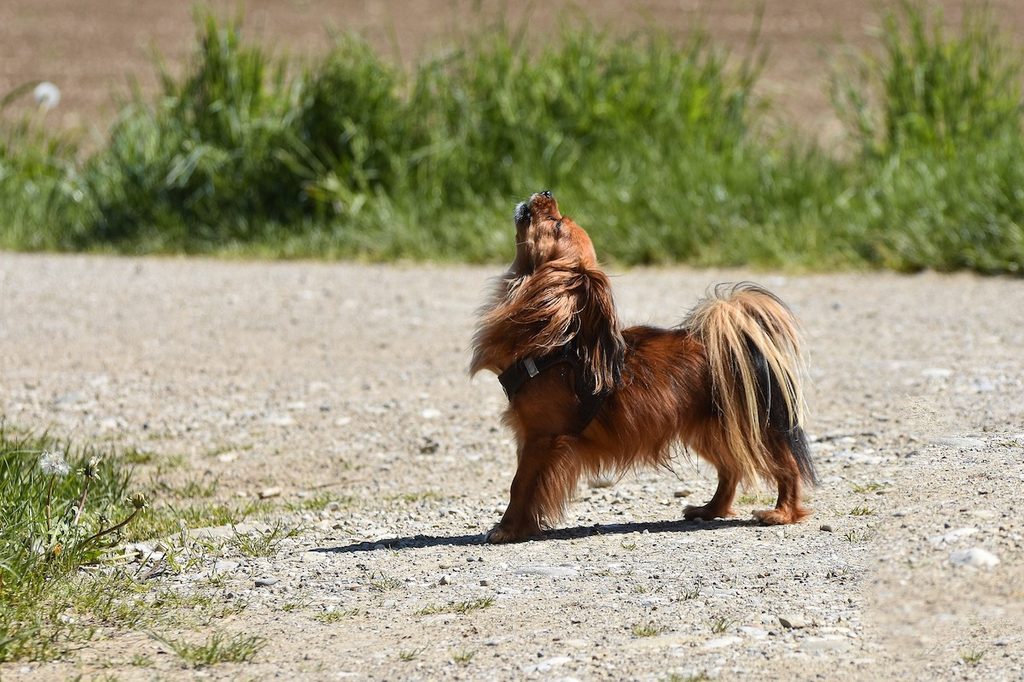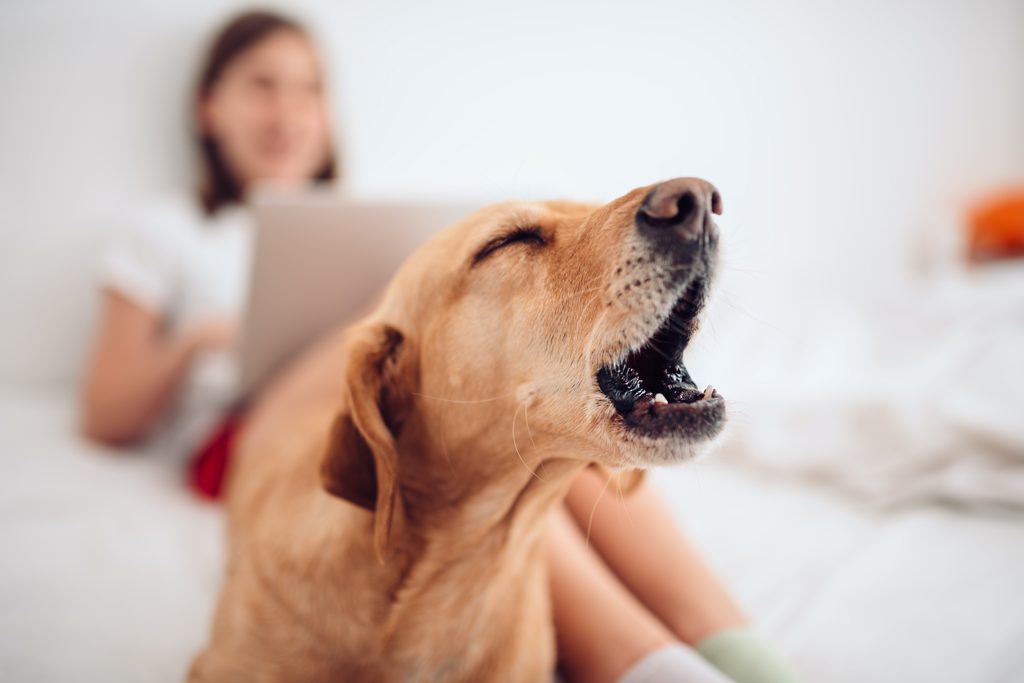
You may enjoy watching wolves howl at the moon on TV, but you probably don’t like it when it comes to life in your own home. Sometimes, in the middle of the night, your dog will wake up and channel their inner Canis lupus (wolf). Both of you need sleep, so you might want to try to tamp this down with a little retraining.
Of course, the first step to fixing your noise problem is to figure out the underlying cause, which involves paying a bit more attention to exactly what your pup is doing and when. So, if you wonder, “Why is my dog howling at night?” we suggest you note a few factors.
Why do dogs howl?

This ancestral instinct likely exists to help assemble large wolf packs across long distances. Additionally, howling may assist in warding off rivals when wolves have staked out their territory. Our dogs inherited the tendency for much the same reason, but vocalizations have diversified across the millennia. Sometimes, pets will howl when left alone, which could stem from a similar intuition. However, you will get a lot more vocal variety in your furry friends than their wild counterparts.
Which breeds are known for howling?

Some dog breeds don’t howl much or at all, while others could easily be mistaken for feral beasts. Huskies, in particular, sound much like their untamed cousins and howl frequently, but they aren’t the only ones. In fact, this behavior stems across many breeds of all varieties. Everything from the tiny Chihuahua yowl to the bay of a beagle counts as a howl, but many of these noises have different meanings.
What does a dog howling at night mean?

There’s no quick answer to this because it could mean just about anything, including excitement, stress, pain, or boredom (that pretty much seems to cover it). To assist you with narrowing down the hidden message in your pooch’s singing, we’ll walk you through some common clues to look for and help guide you to an answer.
Medical issues
If you’ve had your buddy a long time and they suddenly start howling one night, you might have a health issue at hand. Take a closer look to see if anything jumps out, like a limp or another noticeable injury. But don’t rule this out even after not spotting anything. Your pup might feel ill with no outward signs. When it looks to be the cause, schedule an appointment with the vet quickly.
Hunger
A sudden diet change could lead to extra vocalization at night. Don’t worry too much — they’re just hungry. However, check in with your vet to ensure you’re providing the proper nutrition and that your dog is consuming enough calories. Even if your pet needs to lose weight, they shouldn’t be so hungry that it’s keeping them up at night.
Separation anxiety
Since wolves howl to gather their families, it makes sense that dogs would start to cry when you leave the house. No dog should be left alone for long stretches on a regular basis, and you’ll want to set aside dedicated time to pay attention to them when you are around. If Fido isn’t getting enough love, consider a dog walker or daycare while you work.
Too much energy
Some dogs stay up late at night solely because they didn’t get worn out during the day. Many large breeds need over an hour or more of exercise per day, including multiple walks. Make sure they’re getting physical and mental stimulation daily, plus attention from their beloved humans.
A response
We saved the easiest for last. If you hear a dog (or even a coyote out your window) howl into the night and your beastie responds, you know exactly why they’re speaking. Keep in mind though, your animal has a much better sense of hearing than you do and may notice sounds that don’t register in your ears.
You might not catch your domesticated canine howling at the moon, but that doesn’t mean they won’t make noise at night. While the exact cause varies, it frequently indicates distress, and you’ll need to take a minute to dig into their health, routine, and behaviors to figure out what’s going on. If it looks to be related to their health, then get in touch with the doggy doctor right away; otherwise, you may need to give them longer walks or a later dinner. No matter the cause of the howling, it can’t hurt to give your favorite four-legger a bit of extra love so they know their whole family is safe and sound — and doesn’t feel the need to call for them.




